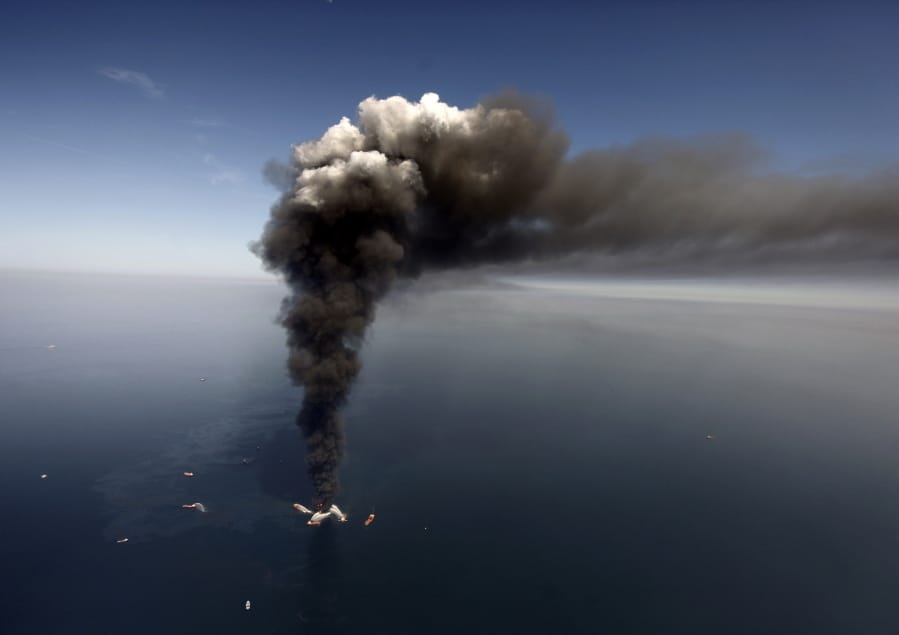NEW ORLEANS — Ten years after an oil rig explosion killed 11 workers and unleashed an environmental nightmare in the Gulf of Mexico, companies are drilling in deeper and deeper waters, where payoffs can be huge but risks are greater than ever.
Industry leaders and government officials say they’re determined to prevent a repeat of BP’s Deepwater Horizon disaster, which spilled 134 million gallons of oil that fouled beaches from Louisiana to Florida, killed hundreds of thousands of marine animals and devastated the tourist economy.
Yet safety rules adopted in the spill’s aftermath have been eased as part of President Donald Trump’s drive to boost U.S. oil production. And government data reviewed by the Associated Press shows the number of safety inspection visits has declined in recent years, although officials say checks of electronic records, safety systems and individual oil rig components have increased.
Today, companies are increasingly reliant on production from deeper and inherently more dangerous oil reserves, where drill crews can grapple with ultra-high pressures and oil temperatures that can top 350 degrees.
Despite almost $2 billion spent by the industry on equipment to respond to an oil well blowout like BP’s, some scientists, former government officials and environmentalists say safety practices appear to be eroding.
“I’m concerned that in the industry the lessons aren’t fully learned — that we’re tending to backslide,” said Donald Boesch, a University of Maryland professor who was on a federal commission that found the BP blowout was preventable.
After the spill, oil giants created the Marine Well Containment Co., which has equipment and vessels ready to respond if another major spill occurs.
“All of industry wanted to make sure that nothing like it could ever happen again,” said company CEO David Nickerson at the company’s complex, near Corpus Christi on the Texas coast.
Industry leaders say the administration’s rule changes allow companies to deviate from “one-size-fits-all” standards not always suited to water pressure and other conditions at individual wells.
Companies also have a financial interest in avoiding a repeat of an accident that has cost BP more than $69 billion in cleanup expenses, fines, fees and legal settlements.
The rule changes under Trump, including less frequent safety tests, are projected to save energy companies $1.67 billion over a decade.
An AP review found inspection visits by the U.S. Bureau of Safety and Environmental Enforcement — created in the 2010 disaster’s aftermath — went down more than 20 percent over the past six years in the Gulf.
Bureau spokesman Sandy Day said government inspection data AP gathered reflects visits by inspectors to rigs, platforms and other facilities. But Day said the data doesn’t show electronic records reviewed remotely or the increased time spent at each facility and all the inspection tasks performed. Those, he said, have increased from 9,287 in 2017 to 12,489 last year.
“While on the facility we did numerous inspections of different items,” Day said, including equipment meant to prevent major accidents. He added that electronic records allow more work to be done from shore, rather than on site.



